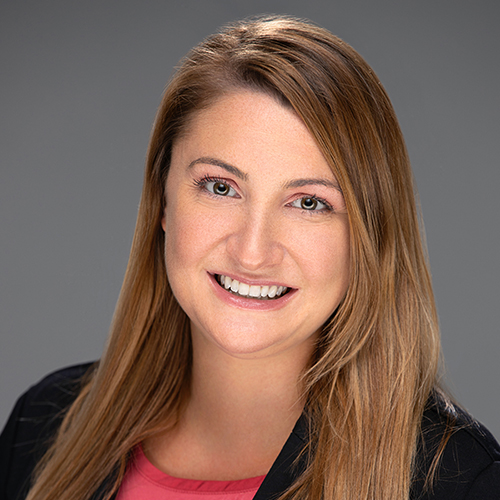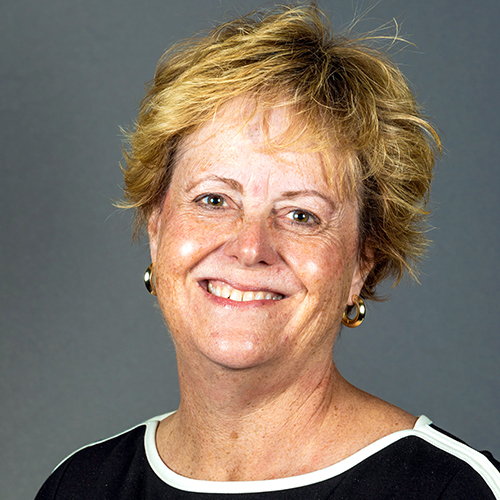 IBCLC Detailed Content Outline: Pathology Focused CERPs - Section III
IBCLC Detailed Content Outline: Pathology Focused CERPs - Section III
Access CERPs on Pathology for the IBCLC Detailed Content Outline recertification requirements. Enjoy convenient on-demand viewing of the latest Pathology focused IBCLC CERPs at your own pace.
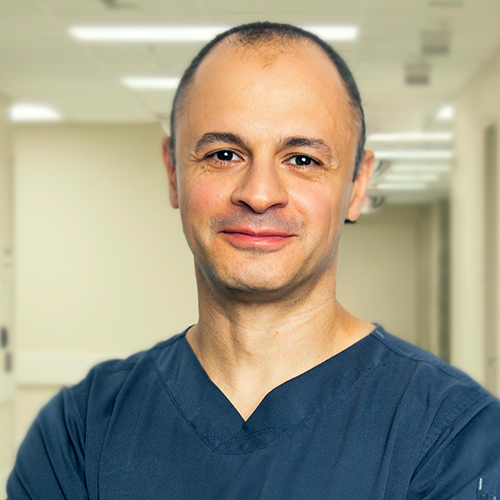
Early Breastmilk Exposure and Later Cardiovascular Health in Premature Infants

Prof EL-Khuffash is a Consultant Neonatologist and Paediatrician. He is a qualified International Board Certified Lactation Consultant. His two primary clinical and research areas of expertise are heart function in neonates and the promotion of breast feeding, and breast feeding support, to new mothers. He also has extensive expertise in general feeding issues encountered by babies over the first few months.
Prof EL-Khuffash sees families for prenatal breast feeding and fetal anomaly consultations and postnatal infant assessment, 2 and 6 week checks, and breastfeeding/general support including early irritability and reflux in his consultation rooms in the Rotunda Private Clinic.
Prof EL-Khuffash has considerable knowledge of breast feeding medicine and experience in providing antenatal and postnatal breast feeding advice and support to new mothers. This includes identifying and addressing challenges to breastfeeding in both the mother and the baby. He also specialises in general feeding difficulties and early feeding issues encountered by babies.
Prof EL-Khuffash graduated from Trinity College, Dublin in 2002 and enrolled in the Royal College of Physicians of Ireland paediatric specialist training scheme in 2005. He completed a Doctor of Medicine (MD) degree in University College, Dublin in 2008 and his neonatal specialty training in Toronto, Canada (2009-2011). Following this, he was appointed as a consultant Neonatologist and Assistant Professor of Paediatrics at the University of Toronto in January of 2011. He obtained a diploma in clinical epidemiology during his time in Toronto. He is the recipient of several national and international research awards, with international peer reviewed publications and keynote presentations and the lead for cardiovascular research, supervising several post graduate PhD candidates.
Topic: Mother's Own Milk Versus Donor Human Milk in the NICU: Practical Recommendations for Individualized Care - [View Abstract]
Premature infants have impaired cardiovascular function that persists into adulthood. Preterm infants exhibit impaired systolic and diastolic dysfunction that is intolerant of the adverse loading conditions experienced during the early neonatal period. Young adults born premature demonstrate a unique cardiac phenotype characterized by reduced biventricular volume, relatively lower systolic and diastolic function, and a disproportionate increase in muscle mass. This may clinically manifest by an increased risk of cardiovascular incidents, hypertension, and reduced exercise tolerance. Those consequences appear to result from early postnatal cardiac remodelling due to premature birth and associated comorbidities. Recent evidence suggests that early exposure to breast milk slows down or even arrests those pathophysiological changes, thereby mitigating the long-term adverse effects of premature birth on cardiovascular health. In this presentation, I aim to demonstrate the vital role of early breast milk exposure in preventing cardiovascular disease in preterm infants. We will explore the emerging evidence and examine the possible mechanistic pathways mediating this phenomenon.
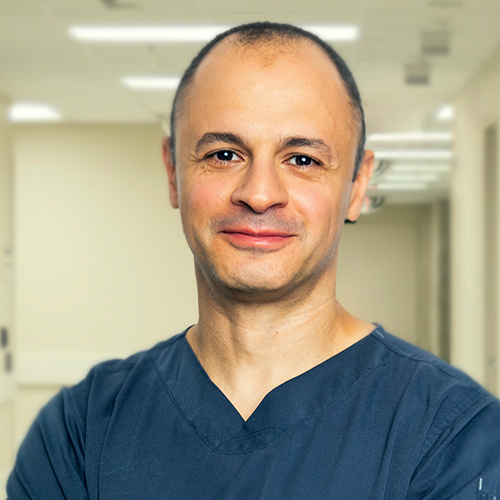
View Details / Enroll

Eating Disorders in the Perinatal Client: A Trauma Informed Model

Kristin is a Licensed Clinical Social Worker and IBCLC in private practice in central NJ. Her practice specialties are low supply, maternal and infant mental health, and the intersection of ethnicity, sexual orientation, and gender in the care of the new family. She has spoken on various lactation, mental health, and equity topics for USLCA, the Lehigh Valley Breastfeeding Association Conference, the Appalachian Breastfeeding Conference, LPPEC, LC in PP, and for LLL of the Garden State. She designed and taught a training course on Mental Health First Aid for Perinatal Providers. She has been a featured speaker on several lactation related podcasts.
She is the mother of two children who nursed full term despite maternal IGT, and who are now 16 and 13. She is an anti racist LGBT+ activist, a member of transformative works fandoms, and makes fighting for a better world part of her daily life.
As lactation professionals, we see clients who are experiencing many challenges during the perinatal period. Clients with eating disorders are uniquely at risk, as are their babies. This presentation will educate the perinatal professional about how eating disorders present in the childbearing year and beyond. It will explore the connection between trauma and disordered eating, and teach how to be a trauma informed provider for eating disordered clients. It will discuss the specific and unique challenges the person with an eating disorder may have during lactation, including postpartum body image, elimination diets, and provider bias. The learner will gain the skills needed to screen for disordered eating and provide culturally humble and appropriate referral for congruent care.

Epilepsy in Pregnancy: Reducing Risks with a Multiprofessional Healthcare Team

Kim is an advanced clinical practitioner, independent nurse prescriber, registered nurse and registered midwife with additional qualifications in epilepsy, complex pregnancies, child protection, pharmacology, advanced decision making, epidemiology, diagnosis and history taking and research. She is a specialist in antiepileptic drug prescribing management & all aspects of reducing the impact of epilepsy. Since 2000, she has conducted a women with epilepsy service which provides holistic care and treatment support from teenage years to motherhood. In addition, she established and ran for 7 years a thriving community epilepsy specialist nursing service for Southampton and since 2017, a new rapidly expanding secondary care service for Winchester. Kim designed the maternity epilepsy toolkit embedded in the SUDEP (sudden unexpected death in epilepsy) Action professional checklist and focuses professionally and academically on safety and reducing the risk of avoidable adverse outcomes. She is an MBRRACE assessor and represents the Royal College of Midwives on behalf of midwives on the valproate stakeholders committee.
Epilepsy is a pre-existing, neurological disease present in 0.3%-0.5% of all pregnancies and is associated with increased risks of morbidity and mortality during the pregnancy continuum. These risks are often determined long before conception. This is because epilepsy and its treatment can impact on: education, employment, safety, menstruation, sexuality, fertility, contraception, pregnancy, breastfeeding, parenting, bone health, mental health, quality of life, driving status and independence. This trajectory and the quality of care received during the epilepsy journey can influence pregnancy presentation and outcome. The extremes can be a woman who has received expert epilepsy care and preconception preparation to ensure the risks were minimized when embarking on a planned pregnancy versus a woman who presents with an unplanned pregnancy having received no counselling, no epilepsy specialist care, prescribed a medication that is high risk to a developing baby whilst having uncontrolled seizures. These extremes highlight the need for maternity healthcare professionals to have awareness about the potential health burden associated with epilepsy, knowledge about seizure presentation and management, information about epilepsy treatments and understanding about potential risks to the women and her developing baby and how to reduce risks during pregnancy through joined-up, holistic, multi-professional healthcare provision.

View Details / Enroll


Madge E. Buus-Frank DNP, APRN-BC, FAAN is a nurse practitioner, healthcare improvement scientists and scholar who has been actively engaged in both providing and improving healthcare for nearly 4 decades. Dr. Buus-Frank joined Dartmouth Hitchcock Medical Center in 1990 as one of the first acute care nurse practitioners in the Intensive Care Nursery where she played a pivotal role in building a team of NNPs to serve the Intensive Care Nursery in Lebanon, Nashua, and Manchester. Madge continues to serve as a clinical faculty member in the Department of Pediatrics at the Geisel School of Medicine at Dartmouth and remains invigorated by her clinical practice at the Children’s Hospital at Dartmouth (CHaD) where she has practiced for 30+ years.
Dr. Buus-Frank has been an early innovator on the front lines of developing and testing Learning Health Systems focused on coproducing care with patients and families. as well as improving education and research along the way. In 2019 Dr. Buus-Frank joined The Dartmouth Institute as a Senior Scientist. Her implementation science work currently focuses on a partnership between Dartmouth Hitchcock Health and The Dartmouth Institute, to deliver on the DHH strategic plan, called “The Promise.” She is a co-primary investigator leading a team that is testing the impact of a Learning Health System approach to accelerate co-production of care, to improve the experience of care for our patients and our people and our system. The LHS testing is currently underway in the oncology setting and we will be using whole system measures to evaluate the impact of the Learning health system on patient and family outcomes, cost and value, and research, scholarship and education. Additionally Dr. Buus-Frank serves on a TDI team supporting the Crohn’s & Colitis Foundation’s growing quality improvement collaborative (Qorus) serving as a ead curriculum consultant.
Dr. Buus-Frank is the immediate past Executive Vice President of the Vermont Oxford Network (VON), one of the world’s largest healthcare data and improvement networks in the world. At VON she collaborated with international faculty to conceptualize, design and executed large-scale multi-center quality improvement collaboratives, and massive on-line courses (MOOCs) , bringing >700 hospitals, states and health systems together to learn, share, measure and improve the quality, safety and value of care. Additionally, Dr. Buus-Frank championed and led the development of partnerships with state perinatal quality improvement collaboratives where she built both the common will and capacity to conduct audits and embrace e-based educational implementation packages allowing VON to scale the learning from center level improvement to achieve population-wide results using robust on-line educational technology and learning programs.
Dr. Buus-Frank was the Founding Editor-in-Chief for Advances in Neonatal Care: The Official Journal of the National Association of Neonatal Nurses, a peer-reviewed publication dedicated to advancing the art and science of neonatal care, serving for 5 years in this capacity. She was honored by NANN with a Lifetime Achievement Award in 2021. She is the author of numerous peer-reviewed publications and has been inducted as a Fellow of the American Academy of Nursing (FAAN) for her pioneering work in the field of neonatal care and improvement science.
Join your colleagues for a whirlwind journey of the past 20 years of neonatal care. Together we will reflect on key lessons from the past, identify opportunities to improve care in the present and reimagine how we might provide care to create a preferred future that fosters better health and outcomes for every baby, every time, and everywhere.

Feeding Difficulties: A Look at High Risk Populations

Amber Valentine is a Speech-Language Pathologist who graduated from the University of Kentucky with her MS in Communication Disorders. She is a Board Certified Specialist in Swallowing and Swallowing Disorders and an International Board Certified Lactation Consultant. She worked for Baptist Health Systems, Inc for 8 years before moving to Florida where she worked for Wolfsons Children’s Hospital and Mayo Florida. She is now back in Kentucky working for Baptist Health Lexington. She has experience in adults and pediatrics with feeding and swallowing difficulties including: bedside swallow evaluations, Modified Barium Swallow studies, FEES, and pediatric feeding evaluations including NICU. She has provided guest lectures for the University of Kentucky and the University of Louisville on feeding and swallowing topics. She has presented at the hospital level, local, state, national, and international levels on pediatric feeding/swallowing and breastfeeding.
Lillian Scott is a speech-language pathologist and certified lactation counselor employed by Baptist Health Lexington in Lexington, Kentucky. She received master’s degree in Speech-Language Pathology from Gallaudet University. She received dual bachelor degrees in Communication Sciences and Disorders and Special Education from the University of Kentucky. She has worked with pediatrics and adults in the areas of speech, language, and swallowing. She has NICU, Mother/baby, and outpatient clinical experience working with feeding dyads of breast and bottle feeding infants. In the area of adults and pediatrics, she has experience with clinical swallowing evaluations and Modified Barium Swallow Studies. She has experience with adult Fiberoptic Endoscopic Evaluations of swallowing (FEES). Her interest is in successful feeding by mouth for infants with complex medical histories and promoting breastfeeding in cultures that are not likely to receive the supports for feeding difficulties due to knowledge, costs, and/or access.
Feeding is the most complex task of infancy, even in term babies with no complications. There are many diagnoses, conditions, syndromes, and co-morbidities that can impact feeding in neonates and infants. This talk will briefly highlight many of those, but we will focus on three specific populations of interest –Neonatal Abstinence Syndrome, Infants of Diabetic Mothers, and Downs Syndrome. We will discuss the specific implications these conditions can have on feeding, why these infants may have difficulty, and the classic symptoms one could expect to see. The differences between delayed and disordered feeding will also be addressed. Strategies and adaptions for breast feeding will be discussed. Positioning and external strategies will be explained. Case studies will be shared at the end of the presentation.

View Details / Enroll
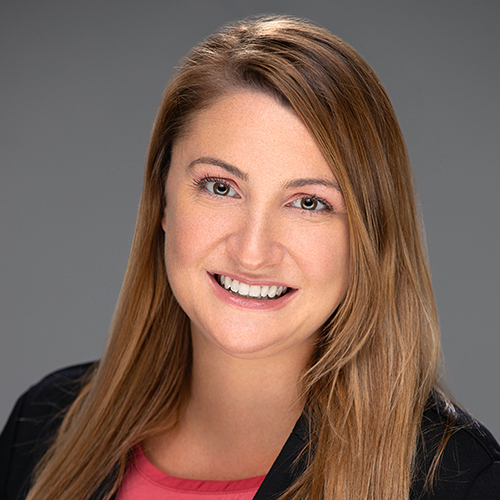

Dr. Jennifer Barnes is the Neonatal Intensive Care Clinical Pharmacy Specialist at Levine Children’s Hospital in Charlotte, NC. She has over 10 years of experience within the field. Dr. Barnes received her bachelor’s degree at Virginia Tech and her Doctor of Pharmacy at Virginia Commonwealth University’s Medical College of Virginia. She completed her pharmacy practice residency at Alamance Regional Medical Center- Cone Health. Dr. Barnes is board certified in pediatric pharmacotherapy. She is also an active member of the Pediatric Pharmacy Association (PPA) and is currently serving as the neonatology committee chair. Dr. Barnes serves as a clinical assistant professor for pharmacy advanced practice rotations for University of North Carolina, University of South Carolina, Wingate University and High Point University. Her current research areas of interest include the role of diuretics in bronchopulmonary dysplasia treatment and antibiotic stewardship for late-onset sepsis amongst other topics.
Topic: Get the LOW Down on Neonatal Hypotension - [View Abstract]
Topic: Starbucks for Babies? Caffeine Use in Neonates - [View Abstract]
At no other time does the hemodynamic status so drastically and rapidly change as the transition from fetal to extrauterine life. Neonates may experience hypotension due to delayed transition, factors of prematurity such as immature myocardium or secondary to a variety of comorbid states including but not limited to chorioamnionitis, perinatal asphyxia, hypovolemia, patent ductus arteriosus, necrotizing enterocolitis, and sepsis. The definition of hypotension and decision to treat are two of the most controversial topics within neonatology. This is in part due to great variability in blood pressure (BP) ranges among neonates and lack of supporting literature which correlate precise blood pressure values with poor clinical outcomes. Of those affected by hypotension, approximately 10-25% of infants weighing < 1500 grams at birth go on to require a vasoactive medication. Despite decades of research, there is still no definitive evidence regarding the impact of treatment for neonatal hypotension, aside from the fact that vasopressors do tend to increase blood pressure. Vasoactive medications are frequently utilized in hypotensive patients however the underlying pathophysiology should be backbone of which medication is chosen. After this presentation, the audience will have a better understanding of when to treat and benefits and risks of common pharmacotherapy agents for hypotension and shock.

How B.E.S.T. (Basic Evaluation of Structural Tension) Relates to Breast©

Judy Terwilliger is a Clinical RN Therapist with Pediatric experience for over 30 years. As lead therapist, researcher and educator in her proprietary form of functional mobility therapy (Functional Bowen™), she works with allied health care providers in the resolve of hidden structural barrier challenges for infants and children. Her collaborative, integrative team care approach sees many successes. She is committed to equipping families with the tools necessary in support of breastfeeding and enabling parents to participate in the resolve of their children’s structural challenges. She is a member of the National Society of Pediatric Nurses and was a nominee in the 2013 Clinical Excellence in Practice Award. She has been a speaker at the Northern California Placer County Breastfeeding Coalition, Imperial Valley Breastfeeding Summit and presented at the 2016 California Breastfeeding Coalition. Her professional memberships include: ABM Network, International Pediatric Integrative Medicine Network, IATP, and Breastfeeding USA. Judy is a licensed continuing education provider for the National Certification Board for Therapeutic Massage & Bodywork, California Board of Registered Nurses, The California Physical Therapy Association, and the International Board of Lactation Consultant Examiners.
This lecture/course is intended to familiarize the medical and allied health community in the recognition of the often-overlooked muscle-related structural barriers to breastfeeding. It provides a discussion of clues to the predisposing factors of these barriers and explores their affect on infant "functional mobility" as it relates to the achievement of successful breastfeeding. It is intended to improve the clinician’s assessment skills as they work with the mother/infant dyad in resolving breastfeeding difficulties/dysfunctions by development of insight into these often hidden and profoundly destructive structural manifestations. Recognition of these barriers with an emphasis on self-help techniques and when/who to refer parents/caregivers to for help, together with how to best meet their teaching/training needs across cultural barriers, is discussed. The ultimate purpose is the achievement of insight to improve the clinician’s evaluation process, better enabling them to promote, enhance and even save the breastfeeding experience of the families served.

View Details / Enroll

View Details / Enroll
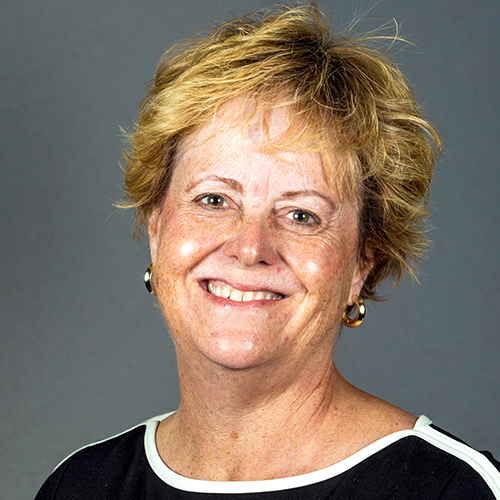

Gail A. Bagwell, DNP, APRN, CNS works at Nationwide Children's Hospital as the CNS of Perinatal Outreach and clinical instructor of practice at the Ohio State University College of Nursing. In her role she works with the healthcare providers caring for neonates and provides education to healthcare providers on the well-newborn as well as care of the sick and premature newborn and serves as a resource on neonatal and quality improvement initiatives. Gail is a member of the National Association of Neonatal Nurses (NANN) and currently the Immediate Past President of the organization. She is also a member of the Central Ohio Association of Neonatal Nurses, American Nurses Association, Ohio Nurse’s Association, Association of Women’s Health and Neonatal Nursing, Academy of Neonatal Nursing, National Association of Clinical Nurse Specialists, Sigma Theta Tau and a Fellow in the American Academy of Nursing. Gail's interests are neonatal abstinence syndrome, breastfeeding, safe sleep, newborn resuscitation and stabilization and parent transition. Gail is a published author of book chapters in all six editions of the Kenner’s ""Comprehensive Neonatal Care"" textbook, the Encyclopedia of Child and Adolescent Development, Neonatal Nursing Care Handbook, editor of the NANN Guideline for Newborn Safe Sleep and multiple journal articles.
Sleep related deaths are the number one cause of infant deaths in the United States, with neonates that have been in a NICU being at a higher risk. In order to combat this problem, the American Academy of Pediatrics (AAP) in the early 1990's began publishing recommendations on how to prevent sleep related deaths in healthy term infants. This effort has led to a decrease in infant sleep related deaths, but confusion remains on when a premature or convalescing neonate be transitioned to a safe sleep environment in the NICU. This presentation will review the different types of sleep related deaths in infants, most current theory of cause of SIDS, review the myths of safe sleep and give guidance to the NICU nurse on how to implement safe sleep in their unit.

Interoception: Beyond the Homunculus....The Real Sixth Sense and Its Primary Function as Sensory Input to the Autonomic Nervous System

Michelle has been a pediatric neurodevelopmental Occupational therapist specializing in precrawling infants for over 26 years. She has specialty certifications and training in lactation, manual therapy, and pre and peri natal psychology. Michelle has specialized in optimal cranial nerve function and oral restrictions, with an emphasis on infant movement, innate biological imperatives and human potential, providing novel curriculums, support and resources for both professionals and parents. She enjoys collaborating and working in teams for babies and families going through the tethered oral tissues release process.
Topic: Breastfeeding and Cranial Nerve Dysfunction – the what, who and why of Cranial Nerve Dysfunction in the newborn to precrawling baby - [View Abstract]
Topic: Compensatory vs Novel Movements: 3 Keys for Babies With Tongue, Lip and Buccal Restrictions - [View Abstract]
Topic: Interoception: Beyond the Homunculus....The Real Sixth Sense and Its Primary Function as Sensory Input to the Autonomic Nervous System - [View Abstract]
Topic: The Vagus Nerve: Branchial Motor / Special Visceral Efferents: The Pharynx, Larynx, Soft Palate and one tiny tongue muscle - [View Abstract]
Topic: TummyTime!™ : A Therapeutic Strategy for Parents and Babies - [View Abstract]
Interoception is a term used to describe our nervous system's awareness of the sensations from the gastrointestinal and visceral system, as well as the primary sensory part/input to baby's Autonomic Nervous System. ANS function and regulation underlay all automatic processes of the body, from heart beat to breastfeeding and digestion function, as well as maintaining a calm state in order to engage in social interaction or to transition easily in and out of sleep. More simply put, interoception is "feelings from the body". In addition to visceral information, interoceptive pathways carry information related to affective touch, itch, temperature and pain and are delivered to a separate area of the brain, the insular cortex, which also contains a map of the body, similar to the well known homunculus. Interception plays a large role in dynamic equilibrium and autonomic regulation of tissues of the body. Interoceptive information and the processing is the basis of all important activity to optimize energy utilization. This system is often compromised in babies who present with complex oral dysfunction, tethered oral tissues, postural asymmetries, fussiness, gas, reflux or other dysregulation in function. How babies feel is mirrored in how they function, compromised function equals compromised interoceptive processing. This talk covers the basics of this system and practical clinical applications for precrawling babies to optimize neurodevelopment and breastfeeding abilities.

View Details / Enroll

Lactation After Bariatric Surgery: Physiological, Hormonal and Psychological Implications

Bianca Balassiano has been working with families in private practice since 2008 as an IBCLC and perinatal psychologist/maternal-child health specialist. As a natural consequence of her professional background, has supported breastfeeding families into achieving individual goals while maintaining mental health and stimulating a holistic look towards the subject. Since 2014 is also working as an educator for healthcare professionals in one of the most recognized breastfeeding courses in Brazil, currently offering virtual classes and all over the country. Lives with husband and two children in Rio de Janeiro, Brazil. In 2020, she launched her first book aimed at families with the title "Gradual Weaning: How to Bring Your Breastfeeding Story to a Happy End".
Topic: Lactation After Bariatric Surgery: Physiological, Hormonal and Psychological Implications - [View Abstract]
With the increase in the prevalence of obesity internationally, the world is turning its attention to effective forms of treatment. As a result, surgical techniques are increasingly being used in an attempt to ensure weight loss, reduction of comorbidities and hormonal balance in young patients of childbearing age. However, as a restrictive and disabsortive surgery, its impacts on pregnancy, childbirth and postpartum outcomes have been increasingly studied closely. Scientific studies provide substantial data on lactation after bariatric surgery, with common outcomes such as greater use of supplementation, less exclusive breastfeeding, shorter duration of breastfeeding and a higher rate of nutritional and vitamin deficiencies. Less studied, however, are its emotional effects on the lactating person, as well as the impacts on body recognition and the difficulties in dealing with the new morphological breast/chest configuration. Therefore, it is essential that the health professional who is dedicated to working in support of breastfeeding is specially trained to support families for the proper management of breastfeeding in the presence of substantially increased risks, as demonstrated after bariatric surgery.

View Details / Enroll












